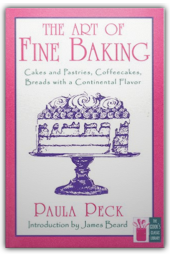
In 1746 the French philosophe Condillac published his Essay on the Origin of Human Knowledge, one of many attempts during the century to determine how we organize and validate ideas as knowledge. In investigating language, especially written language, he found not only the seriousness he sought but also a great deal of frivolity whose relation to the sober business of philosophy had to be addressed somehow. If the mind truly reflects the world, and language reflects the mind, why is there so much error and nonsense? Whence the distortions? How can they be remedied? 
In this volume leading composition scholars consider the ways in which argumentation as an approach to teaching writing remains valuable - in spite of the challenge presented by postmodern theories. 
"Sylvia Plath's last poems have impressed themselves on many readers with the force of myth."—The Critical Quarterly 
Introduced by Francis Fergusson, the Poetics, written in the fourth century B.C., is still an essential study of the art of drama, indeed the most fundamental one we have. It has been used by both playwrights and theorists of many periods, and interpreted, in the course of its two thousand years of life, in various ways. The literature which has accumulated around it is, as Mr. Fergusson points out, "full of disputes so erudite that the nonspecialist can only look on in respectful silence." But the Poetics itself is still with us, in all its suggestiveness, for the modern reader to make use of in his turn and for his own purposes. 
A microbrewery in a box, this kit contains everything the homebrewer needs to make great beer, including a detailed how-to-book, reusable equipment, and the ingredients for almost a dozen thirst-quenching brews. 25 line drawings. 
The Art of Eating "…only wise men know the art of eating." —Brillat-Savarin "There is a communion of more than bodies when bread is broken and wine is drunk. And that is my answer when people ask me, Why do you write about hunger, and not wars or love?" So M. F. K. Fisher begins The Gastronomical Me, one of the five memorable volumes collected together here in The Art of Eating. The five books cover an eclectic array of thoughts, memories, and recipes, from World War I vignettes of frugality at the table to a consideration of the social status of vegetables. Her recipes range from those for all manner of oysters, dressed and undressed, to Cold Buttermilk Soup, and are accompanied by the remarks and observations that provoked W. H. Auden to say, "I do not know of anyone in the United States today who writes better prose." "M. F. K. Fisher evokes the magic that shimmers just beneath the surface of the most commonplace, everyday experiences in prose you can wrap around your soul." —Richard Sax, Chocolatier "M. F. K. Fisher is one of the best food writers. She makes you laugh, tells you stories, intrigues your mind, gives you an appetite, takes you on her travels. She is witty, wise, and unpretentious." —Jane Grigson "One of the world's finest food writers and, in the eyes of many, the grand dame of gastronomy…M. F. K. Fisher has remained our guiding light, the source of infinite gastronomic and philosophic wisdom, the model of what a truly refined food writer should strive for." —James Villas, Bon Appétit 
With recipes for puff paste and strudel, petits fours glaces and pound cakes - every sophisticated dessert and pastry the heart desires - Paula Peck introduces readers to the art of fine baking. For far too long The Art of Fine Baking has been out of print and unavailable. The Cook's Classic Library edition of this timeless classic belongs in the kitchen of every serious cook. |

In every creative endeavor there is a peak of excellence in both concept and rendering toward which all conscientious artists strive. In the world of sewing and needle-work, haute couture represents this sublime level of achievement. Here is where the grand couturiers—Canel, Dior, Norell, Balenciaga, Valentino, Cadin, Galanos—stand like giants. Their clothes are custom-made in every aspect—construction, fit, detail and finishing— and it is haute couture's continuing devotion to such perfection that gives it pride of place in the world of fashion. The Custom Look, another volume in TIME-LIFE BOOKS' series The Art of Sewing, is your pathway to this heady world of elegant design, beautiful fabrics and couturier sewing techniques. here you will discover how to create your own custom clothes. Beginning with ideas and suggestions for matching fabric to design through the crucial fitting muslin to the final tiny hand stitches, all the steps are here, fully illustrated with handsome color photographs and detailed diagrams. Fabrics used in couture clothes are the most beautiful in the world. Shimmering silks, creamy, lustrous linens, deep, soft woolens, glittering metallics, bold-patterned cottons, supple knits—all are staples in the workrooms of couturiers. To easy your way as you begin to work with these special, often very expensive materials, there is a detailed chart explaining how each responds to hand sewing, machine sewing, pressing and cleaning methods. - - Partial excerpt from flap of book 
Written in China over two thousand years ago, Sun Tzu's The Art of War provides the first known attempt to formulate a rational basis for the planning and conduct of military operations. These wise, aphoristic essays contain principles acted upon by such twentieth-century Chinese generals as Mao Tse Tung. Samuel Griffith offers a much-needed translation of this classic which makes it even more relevant to the modern world. Including an explanatory introduction and selected commentaries on the work, this edition makes Sun Tzu's timeless classic extremely accessible to students of Chinese history and culture, as well as to anyone interested in the highly volatile military and political issues in present-day China. 
At Home with Books is a visual delight, a helpful resource, and an inspiration for every bibliophile with a growing home library. Includes professional advice on editing and categorizing your library; caring for your books; preserving, restoring, and storing rare books; finding out-of-print books; and choosing furniture, lighting, and shelving. Full-color photographs. 
Americans have at last discovered Mexico's passion for exciting food. We've fallen in love with the great Mexican combination of rich, earthy flavors and casual, festive dining. But we don't begin to imagine how sumptuous and varied the cooking of Mexico really is. 
Are we ready for yet another take on superhero morality?Let's hope so, because The Authority: Relentless retools old ideas for a new century. Warren Ellis has his heroes think globally as they kick butt locally, stopping or slowing down to consider how they can use their powers to "make the world a better place."How he can pull this off in our oh-so-ironic age is an artistic mystery, but the results are clear: superheroes with believable personalities and community spirit. Two story arcs, each encompassing terror and evil on a global scale, pit the group of seven against armies of superhumans dispatched in scenes reminiscent of the best action movies. Many of the characters from the older Stormwatch series reappear here, and fans will be pleased to learn that Ellis has, if anything, improved his depth and storytelling prowess.Bryan Hitch's penciling, Paul Neary's inking, and Laura Depuy's coloring are all equally responsible for the gloriously lovely artwork—from interdimensional spaceships to dismembered spinal cords, they make saving the world beautiful. —Rob Lightner |

Raschke-Agostini Library
Collection Total:
1463 Items
1463 Items
Last Updated:
Jan 16, 2011
Jan 16, 2011



 Made with Delicious Library
Made with Delicious Library